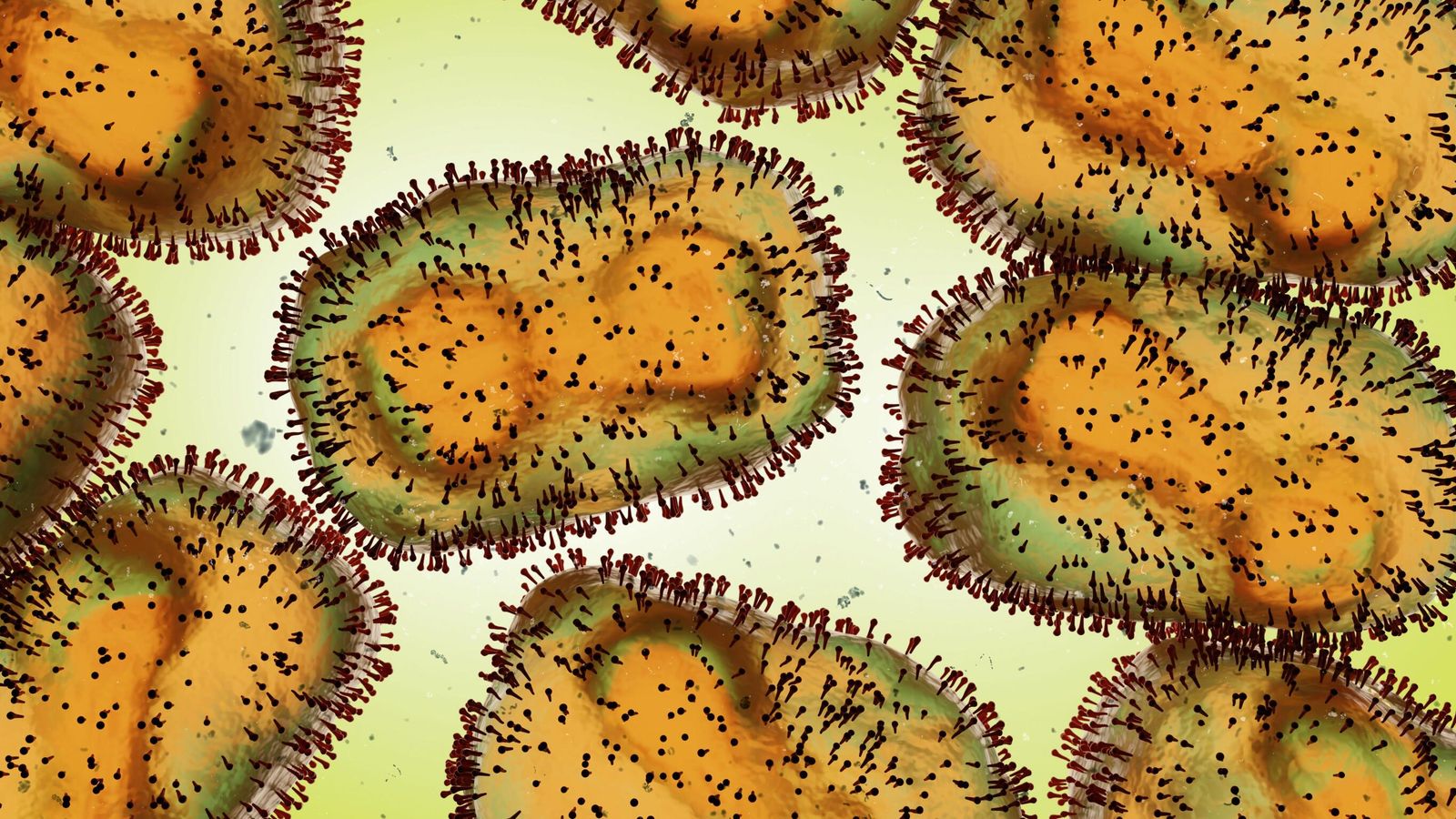Single genital lesions and sores on the mouth or anus have been identified as symptoms of the monkeypox virus.
The symptoms, which have led to hospital admissions, have been identified by an international collaboration of clinicians across 16 countries.
The study, which was led by researchers at the Queen Mary University of London, aims to improve future diagnosis and slow the spread of the virus while there is a global shortage of vaccines and treatments for human monkeypox infection.
It was carried out in response to the “emerging global health threat” and reported on 528 confirmed infections at 43 sites between 27 April and 24 June 2022.
Gay and bisexual men are disproportionately affected by the spread of the virus, with 98% of those infected from this group.
The researchers said that “although sexual closeness is the most likely route of transmission in most of these cases”, the virus can be transmitted by “any close physical contact through large respiratory droplets and potentially through clothing and other surfaces”.
The reports states many of the infected individuals reviewed in the study presented with symptoms “not recognised in the current medical definitions of monkeypox”.
The report continues: “These symptoms include single genital lesions and sores on the mouth or anus. The clinical symptoms are similar to those of sexually transmitted infections (STIs) and can easily lead to misdiagnosis.
“In some people, anal and oral symptoms have led to people being admitted to hospital for management of pain and difficulties swallowing.
“This is why it’s so important that these new clinical symptoms be recognised and healthcare professionals be educated on how to identify and manage the disease – misdiagnosis can slow detection and thus hinder efforts to control the spread of the virus.”
Read more:
Close contacts of monkeypox sufferers no longer need to self-isolate
Monkeypox could become ‘endemic’ if urgent action isn’t taken, experts warn
The NHS website currently lists a high temperature, a headache, muscle aches, backache, swollen glands, shivering and exhaustion as symptoms.
Chloe Orkin, professor of HIV Medicine at Queen Mary University of London and Director of the SHARE collaborative, said: “Viruses know no borders and monkeypox infections have now been described in 70 countries and in more than 13000 people.
“This truly global case series has enabled doctors from 16 countries to share their extensive clinical experience and many clinical photographs to help other doctors in places with fewer cases.
“We have shown that the current international case definitions need to be expanded to add symptoms that are not currently included, such as sores in the mouth, on the anal mucosa and single ulcers.
“These particular symptoms can be severe and have led to hospital admissions so it is important to make a diagnosis.”
Please use Chrome browser for a more accessible video player
The report comes as the NHS is stepping up its vaccination programme against monkeypox in London as more supplies of a jab come on stream.
On Tuesday, the UK Health Security Agency (UKHSA) said it had procured 100,000 more doses of an effective vaccine as cases continue to rise.
As of 18 July, there were 2,137 confirmed cases in the UK, with 2,050 in England and the majority in London.









